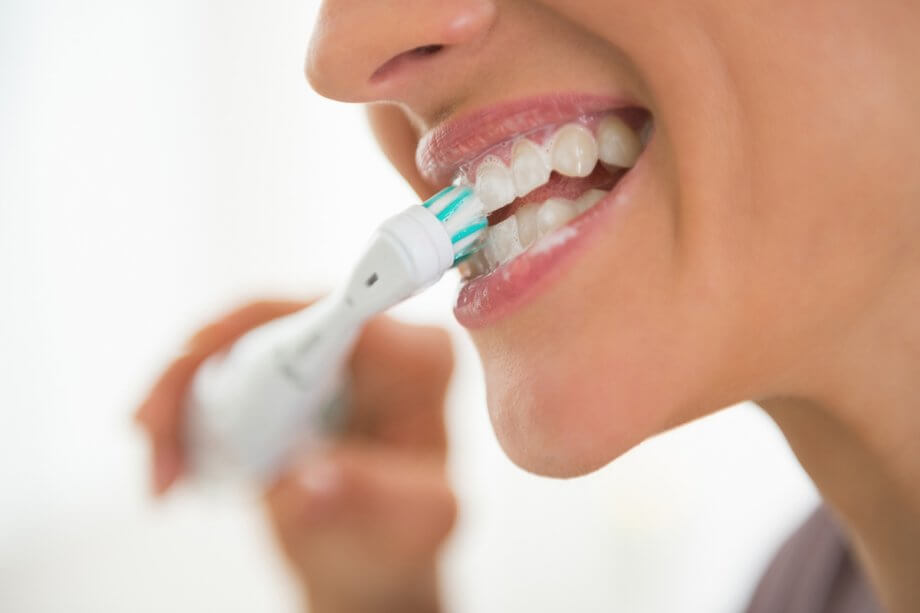The American Dental Association recommends that everyone brush their teeth at least twice daily for a full 2 minutes each time. But, does it matter what type of toothbrush you use? Is an electric toothbrush more effective at removing plaque than a manual toothbrush? What does the science show about how electric toothbrushes compare to manual toothbrushes?
1.Electric Toothbrushes Do a Better Job of Removing Plaque
Plaque is the leading cause of oral health problems. Plaque is the sticky film that forms on the teeth as the result of bacteria interacting with saliva and food particles. When you wake up in the morning, the film-like, or fuzzy coating you may feel on your teeth is plaque. Plaque is the leading culprit behind oral health conditions including:
- Tartar buildup
- Tooth decay (cavities)
- Gum disease (gingivitis)
- Infections in teeth
- Tooth loss
Since plaque causes so many potential problems, removing plaque as thoroughly as possible should be a health goal for people of all ages. Clinical studies demonstrate that electric toothbrushes do a better job of removing plaque than manual toothbrushes. It’s no surprise that additional studies demonstrate that patients who use electric toothbrushes also have healthier gums, less decay, and keep their natural teeth longer than those who use manual toothbrushes.
2.Electric Toothbrushes are Easier for Kids and Those with Mobility Issues
Electric toothbrushes do a lot of the work of removing plaque for you, so they are much easier for children to use. Moreover, many electric toothbrushes come with a built-in timer, ensuring that children are brushing their teeth for the recommended 2 minutes. Many children find electric toothbrushes to be engaging, and fun. This not only helps promote good oral hygiene but lays a great foundation early in life for good oral health in the future.
Likewise, adults with degenerative conditions such as arthritis, and the 1 in 4 people in the U.S. who have a disability, often find electric toothbrushes easier and more comfortable to use. People who have certain injuries and conditions such as carpal tunnel syndrome will also find that electric toothbrushes are a better choice than a manual toothbrush.
3.Electric Toothbrushes Can Save You Money
Because electric toothbrushes are more effective at removing plaque, they can help to save money on dental restorations such as fillings or dental crowns for cavities, scaling and root planing for gum disease, and restorations such as bridges, dental implants, and dentures to fill in gaps left by missing teeth. Although more expensive initially, over time, the oral health benefits that electric toothbrushes offer make them a cost-effective way to keep your mouth healthy.
Maintaining Good Oral Health Requires Regular Dental Appointments
Although electric toothbrushes are more effective at removing plaque than manual toothbrushes, you’ll still need to see a dentist twice a year for professional cleanings and comprehensive oral exams and evaluations. No matter how diligent you are about taking excellent care of your teeth, you won’t be able to remove all of the plaque that builds up.
Plaque between the teeth, beneath the gum line, and behind the teeth is especially hard to remove on your own. However, with regular cleanings and oral examinations at your dentist every six months, you’ll be in a better position to keep your gums, teeth, and mouth healthy well into the future.
Book a Dental Cleaning and Exam in Kensington, MD
At Kensington Natural Smiles, Dr. Susan Ho and Dr. Suprina Kaura provide comprehensive dental care to patients of all ages. If it’s been six months or longer since your dental exam and cleaning, book a judgment-free appointment with our friendly team by calling 301-933-3903. If you prefer, you may send us a message to request an appointment. For your convenience, we accept most insurance plans, all major credit cards, and CareCredit.

